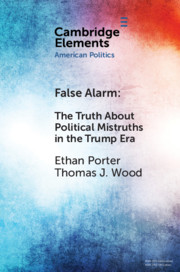Several theoretical perspectives suggest that when individuals are exposed to counter-attitudinal evidence or arguments, their pre-existing opinions and beliefs are reinforced, resulting in a phenomenon sometimes known as ‘backlash’. This article formalizes the concept of backlash and specifies how it can be measured. It then presents the results from three survey experiments – two on Mechanical Turk and one on a nationally representative sample – that find no evidence of backlash, even under theoretically favorable conditions. While a casual reading of the literature on information processing suggests that backlash is rampant, these results indicate that it is much rarer than commonly supposed.



